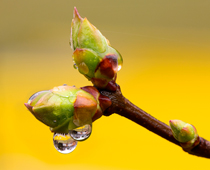
Investigating - Drawing Conclusions from Data
This quiz addresses the requirements of the National Curriculum KS1 Science for children aged 5 and 6 in years 1 and 2. Specifically this quiz is aimed at the section dealing with investigating and drawing simple conclusions from data.
In science you ask lots of questions. Then you plan how to answer them, or draw conclusions. You might investigate by observing or looking closely at things. Or you might investigate by doing a test or an experiment. You collect results or data. But what does the data mean? In this quiz, there are some results. What do the results tell you? Can you answer the questions and draw your own conclusions?
Ash - 4th May
Beech - 17th April
Oak - 8th May
Sycamore - 28th March
What has Isaac found out about when trees make leaves?
Feathers - 7
Foam - 3
Wool - 2
What has Sally found out?
Ready for more?
not all...
quizzers. Try to win a coveted spot on our Hall of Fame Page.

















